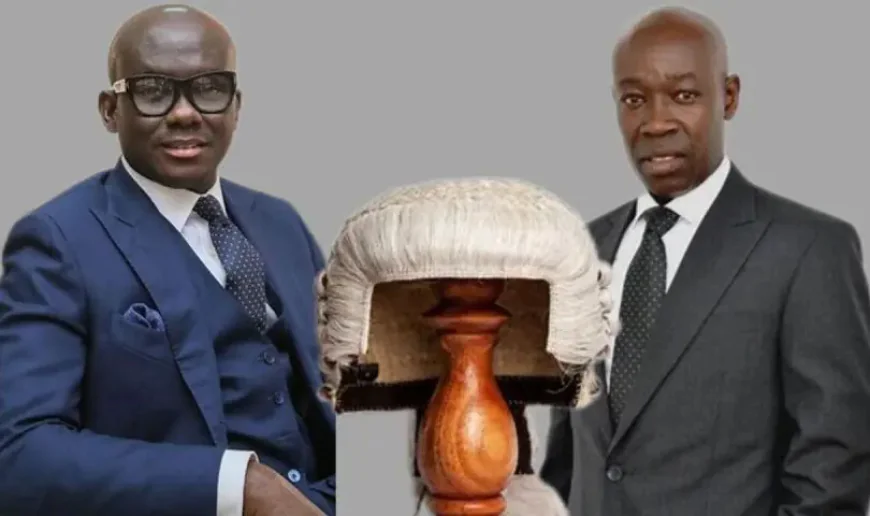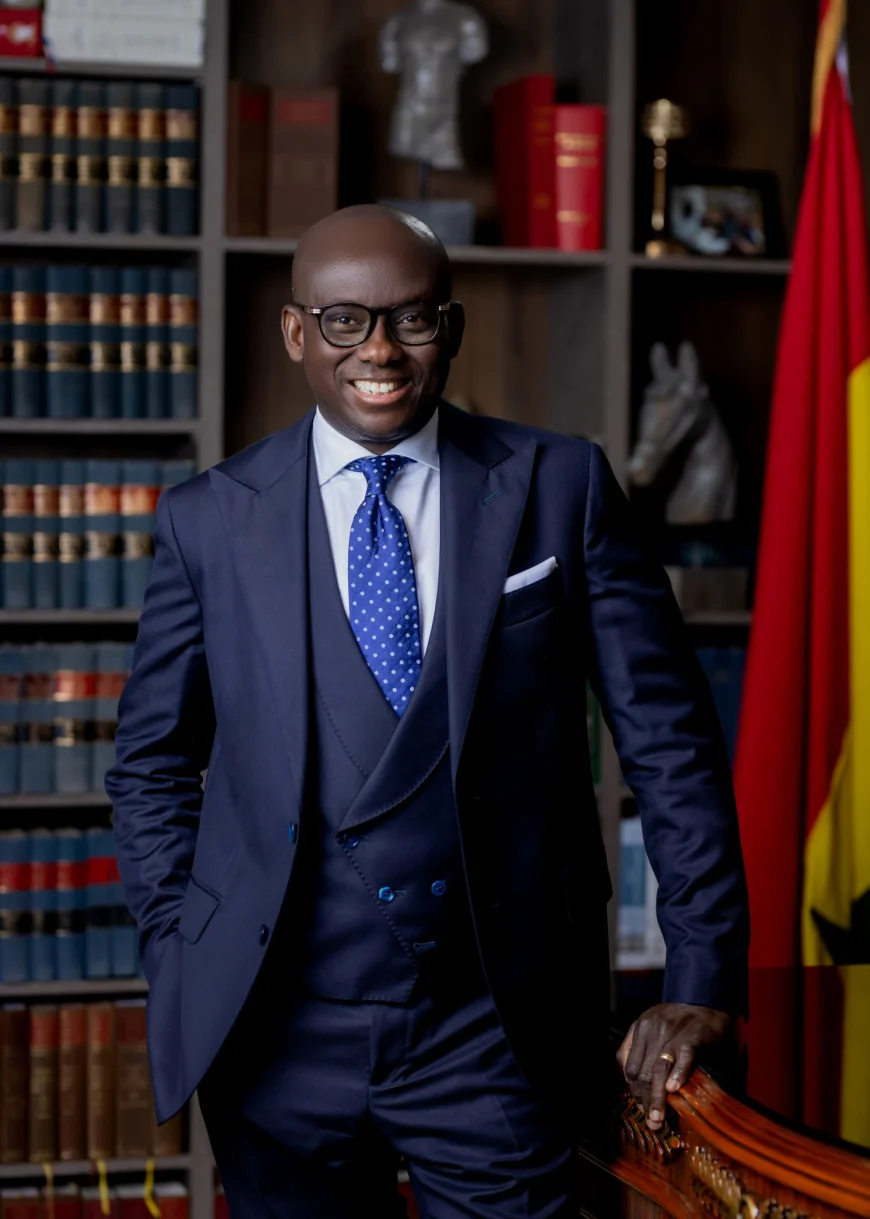Godfred Dame and Thaddeus Sory Legal Clash: A Battle of Law, Politics, and Personal Pride
In a rare public showdown, former Attorney-General Godfred Yeboah Dame and private legal practitioner Thaddeus Sory engage in a heated legal and political exchange over judicial independence, professional ethics, and personal rivalry. Read the full breakdown.

In Ghana’s legal and political spheres, tensions often simmer beneath the surface. But occasionally, they boil over into the public domain. Such is the case in the current exchange between Thaddeus Sory, a respected private legal practitioner, and Godfred Yeboah Dame, Ghana’s immediate past Attorney-General. Their ongoing dispute, laced with professional barbs and political undertones, has become both a legal drama and a lesson in institutional integrity.
The Genesis of the Feud
At the heart of the conflict is the broader context of the legal battles surrounding the suspended Chief Justice, Gertrude Torkornoo. Sory, who represents parties adverse to the Chief Justice in high-stakes civil litigation, has been vocal in accusing Dame of orchestrating politically charged legal maneuvers under the guise of defending judicial integrity.
In a characteristically combative write-up titled “The Incongruous Cry Baby Again…”, Sory tears into Dame, accusing him of hypocrisy, selective morality, and partisan legal posturing. He challenges Dame’s criticism of the team representing petitioners in the CJ’s removal case, arguing that Dame himself was appointed under similarly partisan circumstances and has surrounded himself with overtly political legal allies in high-profile litigation.
Thaddeus Sory’s Case: A Study in Legal Irony

Sory’s polemic operates on several levels:
-
Partisan Allegiances vs. Professional Duty: He defends his right to represent any client—NDC-affiliated or otherwise—while cataloging cases where he represented NPP figures, such as OB Amoah and Kwaku Kwarteng. He accuses Dame of myopic partisanship and legal inconsistency, pointing out that he has worked across political lines.
-
Judicial Favoritism: Sory implies that Dame benefitted from a Judiciary biased in his favor, citing unusually fast ex parte rulings and controversial unanimous judgments under Dame’s tenure. He implies that Dame’s sudden defense of judicial independence now is self-serving and opportunistic.
-
Moral Posturing and Legal Acumen: Sory mocks Dame’s rhetorical appeals to “good men standing for righteousness,” asserting that Dame’s record is riddled with incongruities and selective outrage. The repeated use of the phrase “Cry Baby” serves as a rhetorical framing of Dame as emotionally reactive and morally inconsistent.
Dame’s Rebuttal: Precision, Poise, and Power

Godfred Dame’s response, though calmer in tone, is equally forceful. Delivered in the form of a structured and calculated legal letter, he challenges the factual accuracy of Sory’s claims and subtly questions his motives:
-
Record of Losses: Dame rejects the claim that he never lost a case, citing specific Supreme Court defeats during his time as A-G, which he claims as evidence of a functioning, independent Judiciary. He even highlights these losses as a badge of transparency, contrary to Sory’s portrayal of a rigged system.
-
Past Legal Encounters: Dame reminds Sory of a courtroom defeat dating back to 2009, where Dame prevailed both at trial and on appeal. He uses this as an anchor to argue that his legal competence predates his political elevation, rebutting the idea that his success is solely a function of office.
-
International Credentials: To further bolster his credibility, Dame cites victories in international arbitration, where billions were allegedly saved without foreign counsel. He contrasts this global performance with what he frames as Sory’s domestic obsession with partisan vendettas.
-
Legal Ethics: Perhaps most damning is Dame’s suggestion that Sory’s aggressive tone and relentless personal attacks may fall afoul of professional ethics. He places responsibility for adjudicating that conduct in the hands of legal regulatory bodies, implying potential disciplinary consequences.
-
Poetic Dismissal: Dame closes with both wit and arrogance, suggesting that “when Godfred Dame coughs, the whole NDC catches a cold.” The phrase is as much a dismissal of Sory’s critique as it is a political jab, underscoring Dame’s view of himself as a formidable force whose mere presence rattles his detractors.
Legal Clash or Political Proxy War?

While the direct cause of this feud appears legal, its subtext is overtly political. Both men, while ostensibly speaking as lawyers, are clearly fighting battles on ideological and reputational fronts. Sory’s language—fiery and scathing—reads like a manifesto against politicized legal institutions. Dame, while more restrained, frames himself as a misunderstood reformist unjustly vilified by NDC-aligned voices.
This fight is emblematic of the increasing convergence between Ghana’s judiciary and its political class. As the battle for the CJ’s removal continues, the lawyers on either side are no longer just advocates—they are players in a broader struggle over how justice is seen to be done in a deeply polarized country.
Final Analysis
-
For the Bar: This clash presents a cautionary tale. When personal rivalry and political loyalties infiltrate professional conduct, the very image of the legal fraternity risks erosion.
-
For the Bench: If even the most senior legal actors are perceived as partisan, it underscores the urgency of protecting judicial independence—not just in law, but in perception.
-
For the Public: What may appear as a personal spat is, in fact, a glimpse into the political soul of Ghana’s legal system. Both Sory and Dame are symptoms of deeper institutional tensions that will continue to manifest unless addressed at their root.


